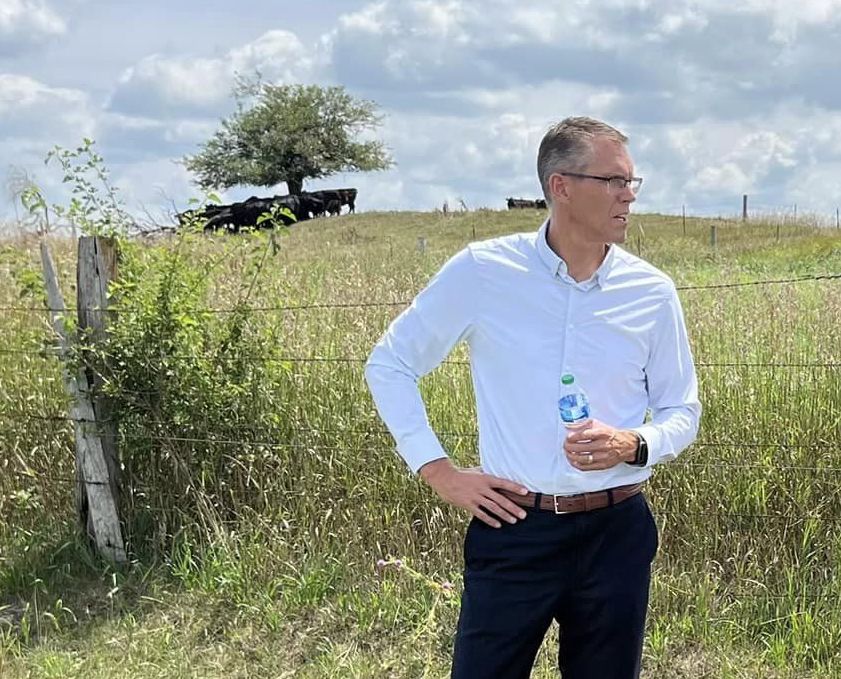
Photo of happy farmer by Serg Grbanoff, available via Shutterstock.
Jason Benell lives in Des Moines with his wife and two children. He is a combat veteran, former city council candidate, and president of Iowa Atheists and Freethinkers.
America Needs Farmers.
This statement has become a cultural touchstone. It became popular during the 1980s farm crisis, as a way to raise awareness of the difficulties suffered in the Midwest agricultural industry.
This phrase and branding has seen a bit of a renaissance in the past decade—featured on bumper stickers, commercials, apparel branding, and even partnerships with major universities like the University of Iowa.
America Needs Farmers, or “ANF,” has become less of a slogan for awareness, and more a brand or identity that Midwesterners tout alongside Carhartt or John Deere. The slogan is now almost synonymous with the Iowa Hawkeyes and rural farming, and is controlled by the Iowa Farm Bureau, a 501(c)5 organization representing farmers across Iowa.
Continue Reading...

